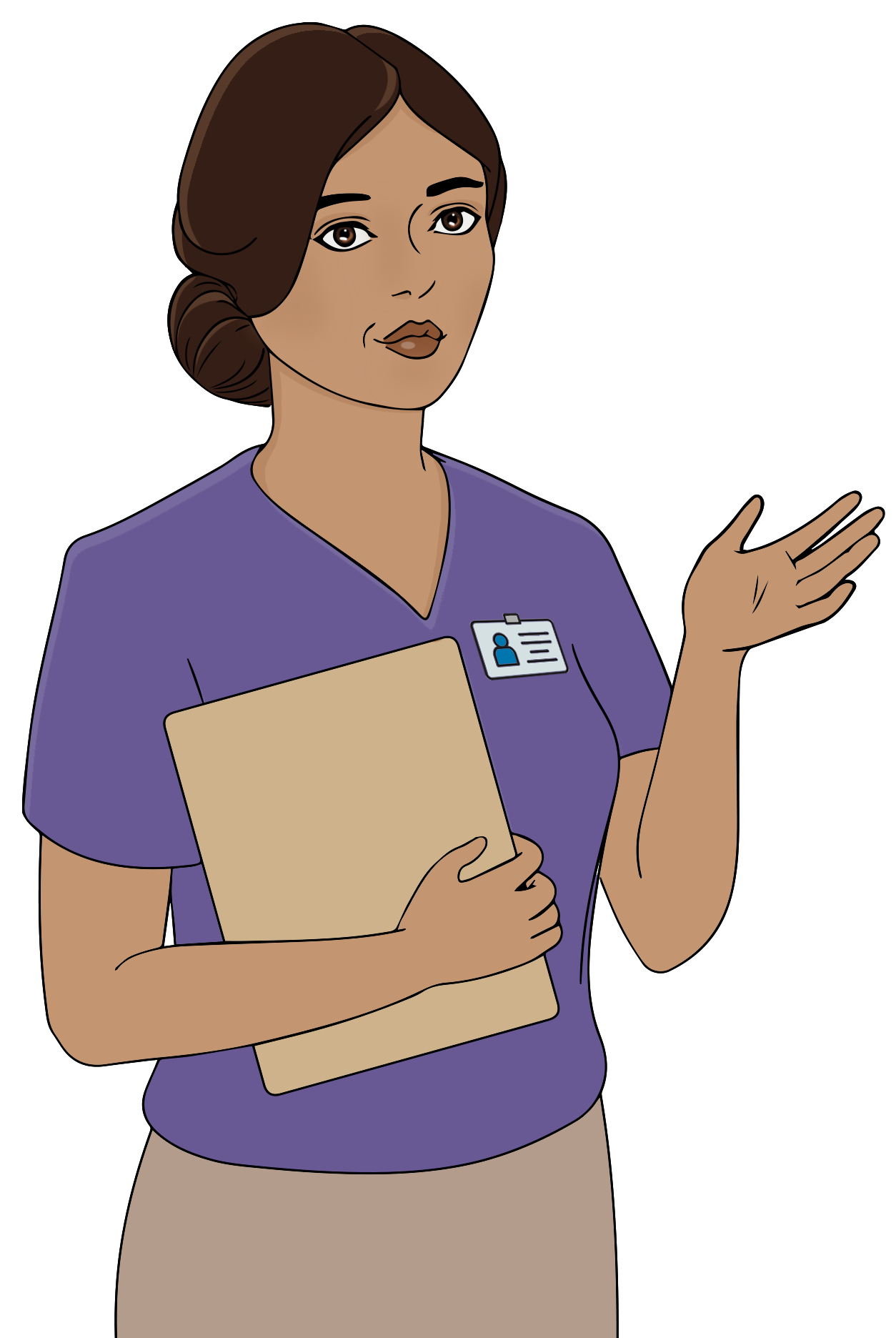
Pick as many books as you'd like to read.
Each book has a question and an answer.



Question
What is cell free DNA (cfDNA) screening?
Answer
Cell free DNA (cfDNA) is a blood test. It tests small pieces of DNA from the placenta that can be found in the blood of a pregnant person. The test looks for the most common chromosome differences. A chromosome difference means that the pregnancy has an extra or missing chromosome. This type of test is also called noninvasive prenatal testing or screening (NIPS) or may be called by a brand name.
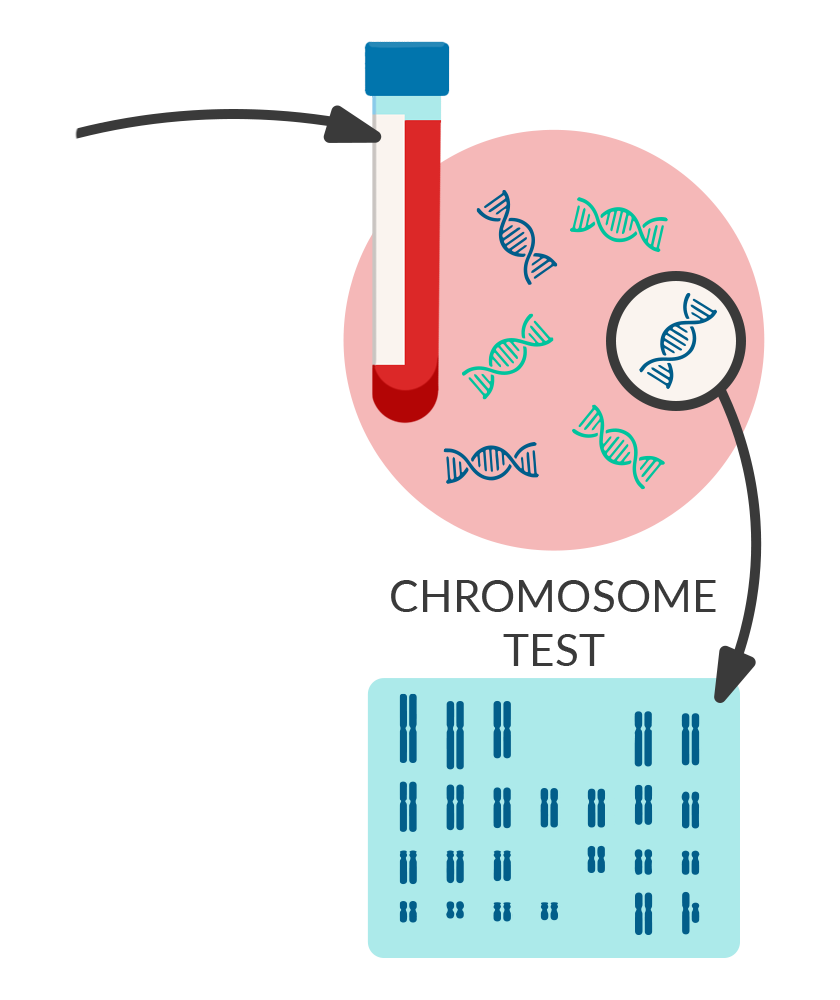
Question
How is cfDNA different from other screening tests?
Answer
cfDNA screening looks at DNA from the placenta that is floating around the pregnant person’s blood. Other screening tests analyze hormones in the blood. cfDNA screening is more accurate and can also provide information about sex chromosomes.
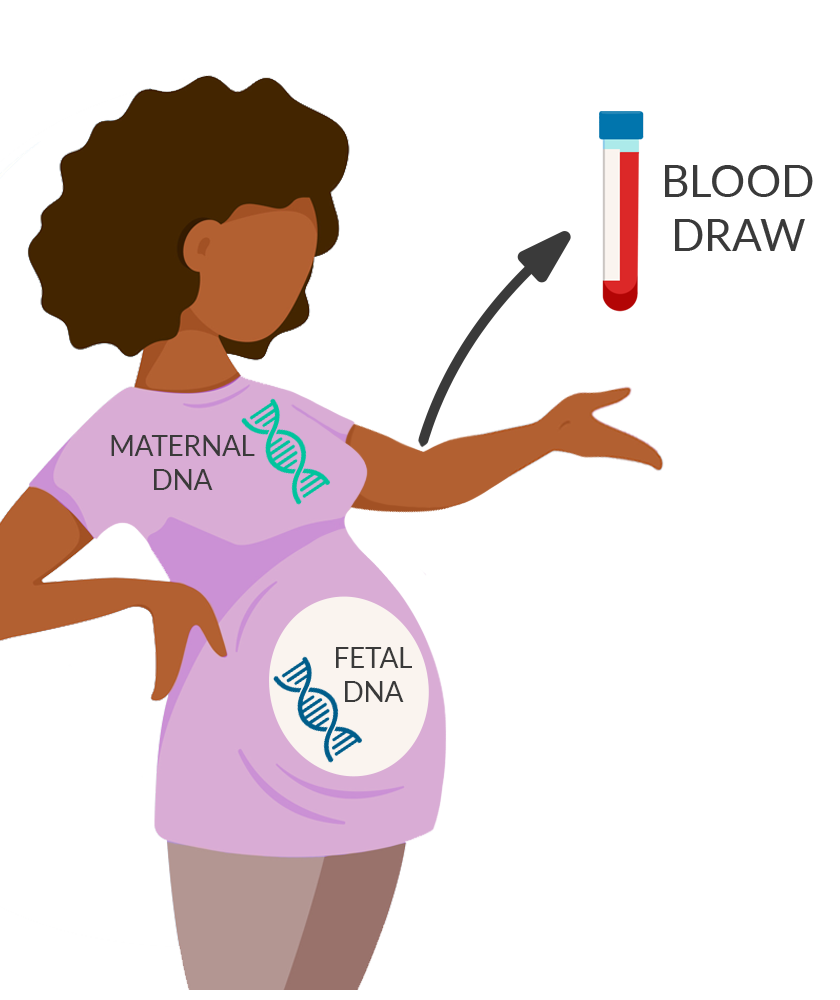
Question
How does the screening test work?
Answer
The test will use blood drawn from the pregnant person’s arm. The test can be done any time after 9 or 10 weeks of pregnancy. Results take about 7 to 14 days.
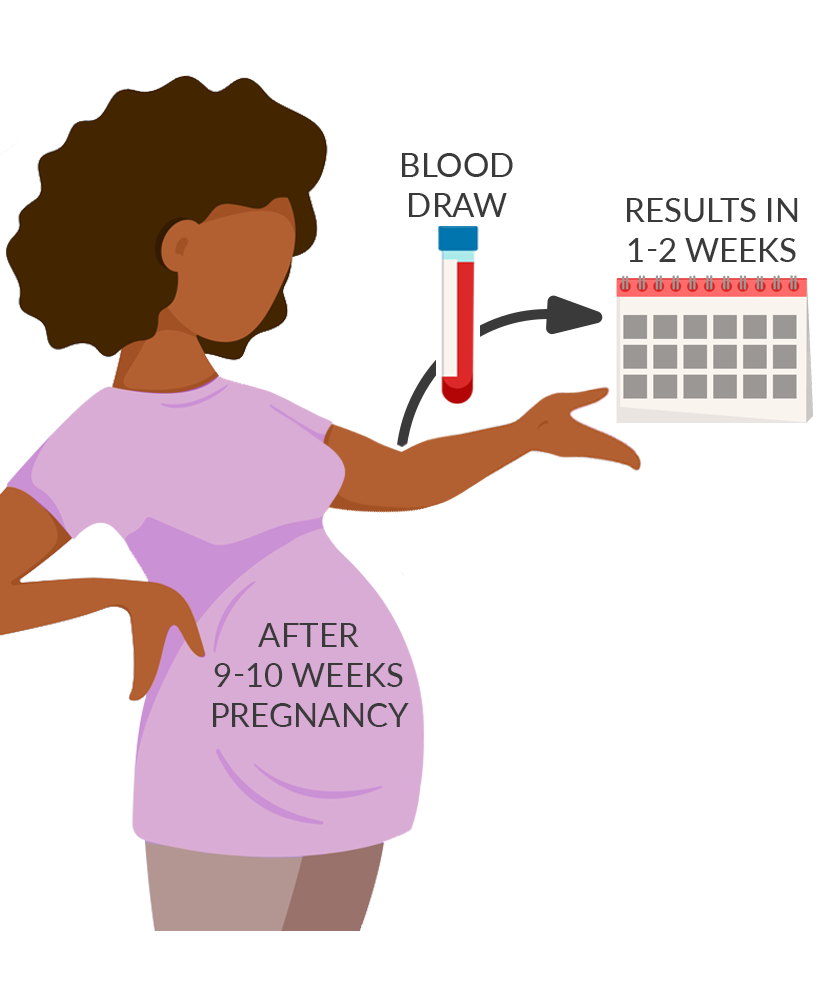
Question
Why is this a screen and not a diagnostic test?
Answer
This test is a screen because it will tell us if the pregnancy has a higher chance or a lower chance of a chromosome difference. This is different from a diagnostic test, which can give a yes or no answer. cfDNA screening measures placental DNA in the pregnant person’s blood, which is very low risk. Diagnostic tests require taking a sample from within the uterus and have a small chance of complications, including miscarriage.
-
Click here for more information
Unlike cfDNA screening, there is a small chance of pregnancy loss with diagnostic tests. Chorionic villus sampling (CVS) is a test that collects a small piece of the placenta between 10-14 weeks of pregnancy. There is about a 1 in 500 chance of miscarriage with this test. Amniocentesis is a test that collects a sample of amniotic fluid after 15 weeks of pregnancy. There is about a 1 in 900 chance of miscarriage with this test.
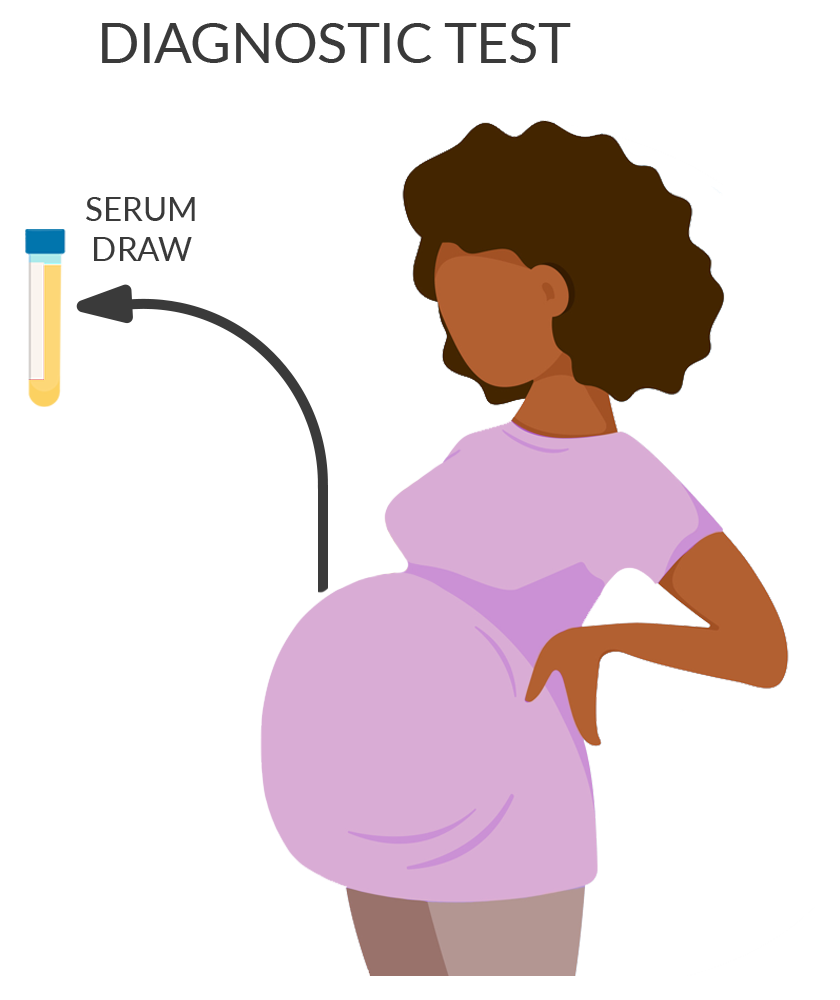
Question
What is being screened for?
Answer
Basic panels include screening for extra chromosome material and sometimes for sex chromosome variations.
-
Extra chromosome material may be a sign of:
-
Trisomy 21 (Down syndrome)
Learn more
Down syndrome is caused by an extra copy of chromosome 21 in each cell of the body. Many people with Down syndrome have mild to moderate intellectual disability, a certain appearance in their face, and lower muscle tone. People with Down syndrome have a higher chance of certain medical conditions. People with Down syndrome often may benefit from early intervention services (like physical therapy or speech therapy). There are medical guidelines to help keep people with Down syndrome healthy and allow them to reach their full potential.
-
Trisomy 13 (Patau syndrome)
Learn more
Trisomy 13 is caused by an extra copy of chromosome 13. People with this condition have growth delay and a higher chance of problems with many of their organs. Unfortunately, many pregnancies with trisomy 13 end in miscarriage or stillbirth. Those with trisomy 13 who live into childhood can often respond to family members and meet some developmental milestones.
-
Trisomy 18 (Edwards syndrome)
Learn more
Trisomy 18 is caused by an extra copy of chromosome 18. Pregnancies with trisomy 18 are often affected by many differences in multiple organ systems, growth delay, and a higher chance of miscarriage or stillbirth. Those with trisomy 18 who live into childhood can often respond to family members and meet some developmental milestones.
-
Sex chromosome variations are conditions with differences in the X and Y chromosomes, such as:
-
Monosomy X (Turner syndrome)
Learn more
Turner syndrome is when a person has one X chromosome instead of the more common XX or XY. People with Turner syndrome often develop as female, although they are shorter than usual. People with Turner syndrome often do not have a typical puberty and may not be able to have children themselves. People with Turner syndrome may also have other health problems, such as heart or kidney problems. The seriousness of these problems is different for different people.
-
XXX, XXY (Klinefelter syndrome), XYY
Learn more
In these conditions, a person has an extra X or Y chromosome. Some of these sex chromosome variations are not noticeable until well into adulthood. They may have some impact on learning, fertility, or development.
Question
Will this test tell me about my chance for future pregnancies to have a chromosome difference?
Answer
No, this test only gives you information about this pregnancy.

Question
If there is no cure for chromosomal differences, why do the screening?
Answer
It’s your choice. Screening allows you to find out if you have a higher chance of having a pregnancy with a common chromosome difference. Many people choose to do testing because they are seeking the reassurance of normal results. Other people feel that it would be helpful to know if their pregnancy is likely to have a health problem so they can prepare themselves and their families and make medical decisions. This test is not recommended for people who only want to know the sex of the pregnancy.
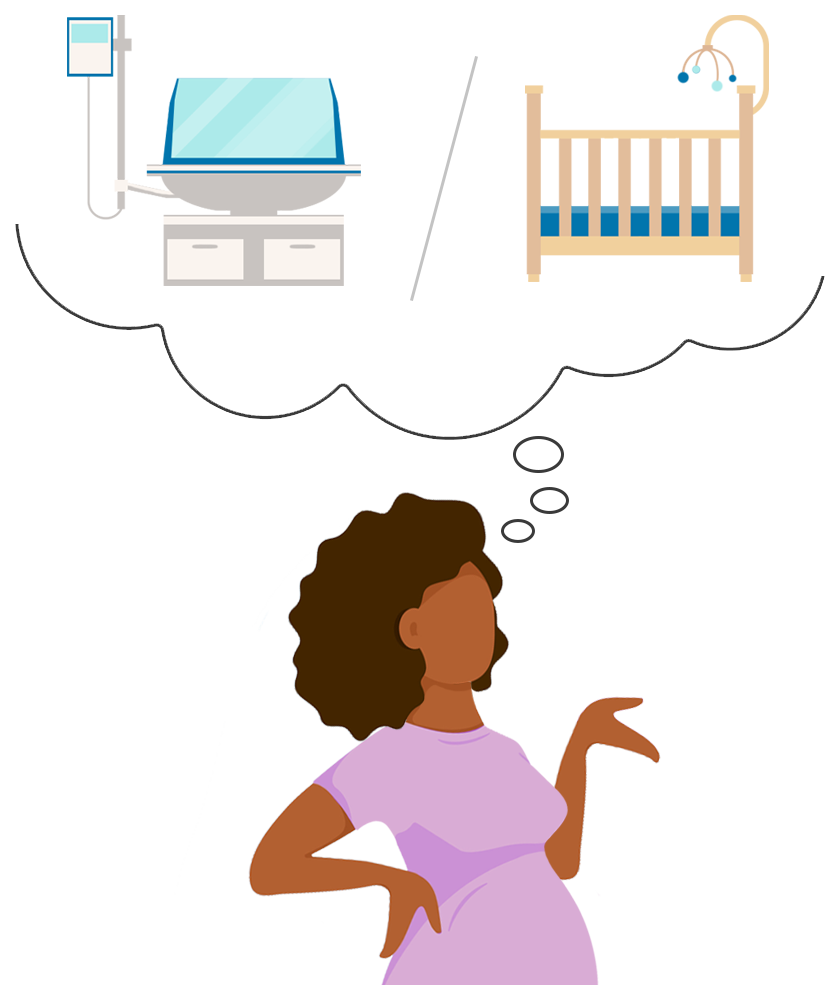
Question
Will the screening tell me about all health problems in my pregnancy?
Answer
No, it will only tell you if your pregnancy has a higher chance of some chromosome differences.

Question
Do I have to get the prenatal screening blood test?
Answer
No. All prenatal screening and diagnostic testing options are your choice. Your health care providers are there to support you with getting the information you need to make the best choice for you and your family.
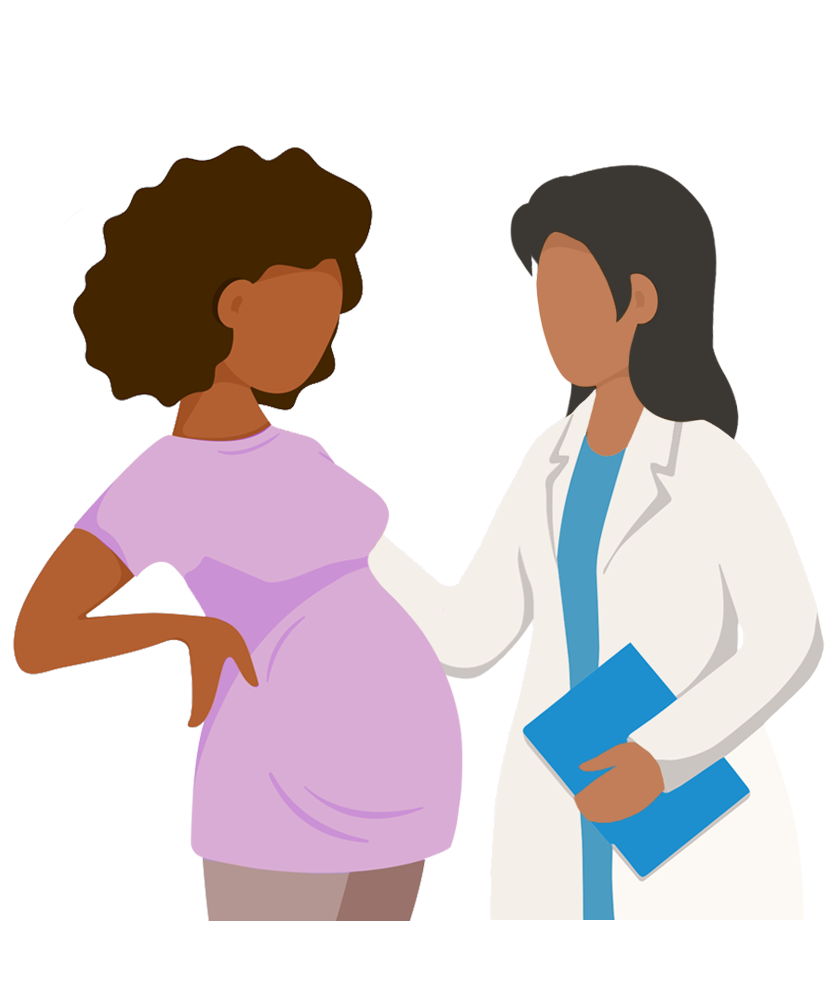
Question
How much does cfDNA screening cost?
Answer
It depends on your health insurance provider. Insurance typically pays for some costs of prenatal genetic screening but you may still have some costs you need to pay yourself. Other patients may have to pay the whole cost themselves. Many companies that provide these tests can help with lower costs or financial help. Check with your insurance company for more information.
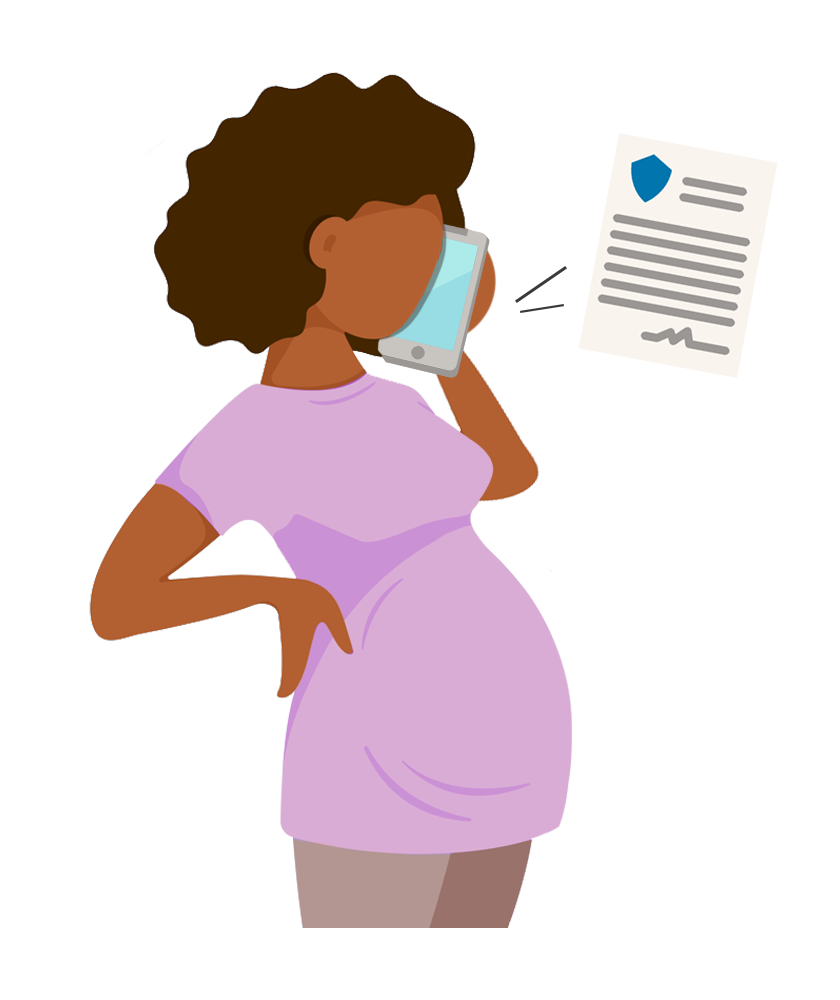
Island Completed!
You've read all the books on Knowledge Island. You can stay here, or return to the map to explore more islands.